|
George Saunders is the best contemporary American writer, an opinion I feel more comfortable holding following the deaths of first Toni Morrison and then Cormac McCarthy.
Unusually among successful writers, his primary medium is short fiction. He’s only got the one novel, Lincoln in the Bardo, which is so good that he should probably stop there. Pastoralia is his second collection of short stories, published in 2000. Prose craft is different from storytelling. Being good at either one of these things is uncommon. Each Saunders sentence writes is a gem, but handled in such a lowkey way that you don’t realize you’re reading a master. You’re too focused on turning the pages because you need to know what happens next. Though if you enjoy audiobooks, I would implore you not to turn the pages but to listen to Saunders narrate his own work. The thing about Saunders that too many reviews miss is that he’s funny. Uproarious. The man is funny in print, but I listened to the book and I was howling. Also: when you listen, you can’t look ahead to know when a story is about to end. Three different times in this book, a story ended and I gasped out loud in shock. There are only six stories so that is a fifty percent gasp rate. My favorite story was “Pastoralia,” about some historical reenactors, but the one I’m going to quote from is “Sea Oak,” in which an elderly aunt bullies her nephew (a sex worker) into earning more money: “Show your cock. It’s the shortest line between points.”
0 Comments
While the rest of you are enjoying Charles Dickens the way God intended, with Muppets, I am here finishing up the first Dickens novel, The Pickwick Papers, serially published in 1836-1837. It follows the adventures of an English gentleman named Pickwick and several of his fellow gentlemen. I cannot overstate how boring these adventures are.
Forgive me. I do not typically speak ill of works by living writers, and even though Dickens is safe from my literary criticism, there are plenty of you out there who like this book, and here I am being unkind to it. I am sorry. I would like to hear what it is you like about it. The book is a series of linked vingettes. Many of them feel frivolous. It is true there are moments of depth, but the first time I said "Ah, now we're getting somewhere" was p. 564, which is fairly late in the game for a plot to thicken Pickwick gets himself thrown in debtors' prison, and for a few blessed pages, Dickens writes with the social consciousness that elevates him above so many other writers. That passage would be enough to radicalize anyone into becoming a prison abolitionist. Regrettably, I cannot speak with such fervor about the remaining 700ish pages. There are also footnotes and appendixes but I have only one wild and precious life. A couple of years back I listened to an audiobook version of The Christmas Carol. It's in the public domain, so there are quite a few voice actors to pick from, but I quite enjoyed the narration by Tim Curry, and that's what I might recommend before the Pickwick Papers. Douglas Coupland's 1994 novel Life After God is super weird. It's about going going though normal adult stuff. Like many works of literary fiction, the plot is not really the main point, though I do not wish to imply that this story lacks in action. The scenes with the exploding nuclear bomb are pretty quick paced if that is important to you.
I want to say that this is a book about finding community and connection even in an isolated world. Now granted I am suspiciously able to find those themes in every book I read, but in this case the reviewer blurbs back me up. This book is dangerously quotable. A few instances: "His main pick-up technique was to pump out negative signals so that women with low self-esteem would be glued to him." "Before we know it, too much time has passed and we've missed the chance to have had other people hurt us. To a younger me this sounded like luck; to an older me this sound like a quiet tragedy." "As I--we--get older, we are all finding that our conversations must be spoken. A need burns inside us to share with others what we are feeling. Beyond a certain age, sincereity ceases to feel pornographic." Coupland's writing reminds me of Russell Banks, with the shrewdness of the main character's perceptions. And I think it's not too much of a stretch to compare this book (it really is weird) to The Little Prince, though it's less whimsical and more the-march-of-time-comes-for-us-all. Also there are lots and lots of little pictures throughout the book, which is pretty great, more books need this please. Contemporary literary fiction is so disappointing to me, so often, but I keep going back to it because sometimes you'll find a gem like Ghost Wall, by Sarah Moss. Also it is short, and that is an admirable quality in a book when your time for leisure reading is limited.
Somewhere in northern England, seventeen-year-old Sylvie is on holiday with her parents. Sylvie's dad is a huge history buff and wilderness survivalist, which is why nobody in the family has bathed in several days. They're too busy foraging hazelnuts and mussels like their Bronze Age forebears. It sounds like the setup for a comedic novel, and while there are moments of hilarity, that's not the primary emotion at work here. This is a dark, violent, ugly story about domestic violence. Sarah Moss reminds me of was Kate Atkinson, but as I was reading reviews, I found a better comparison: Flannery O’Connor. I think that's about right, Flannery O'Connor with some Shirley Jackson. It's about bad men hurting their families, and how individuals and communities perpetuate violence, and in the middle of all this you find yourself snort-laughing because Sylvie said something droll. This is another one where I recommend the audiobook if you can get it. The working class v. posh accents play a role, and narrator Christine Hewitt does an outstanding job. I confess I haven't finished the audiobook yet for Stone Blind, written and narrated by Natalie Haynes, but it's based on Greek myths so I'm sure everyone is happy in the end and no one dies.
Okay so. I was not expecting much from this, for the very simple reason that Madeleine Miller's Greek retellings knocked my socks off, and Claire North has a retelling out recently that I expect will additionally knock my socks off, and there's only so much room for talent to go around. Oh I was wrong. Haynes is funny, let's get that out of the way first. The section she wrote from the perspective of a crow had me clawing at my throat for more air, I was gasping so hard. Or here's this bit from the perspective of an unnamed Nereid: "Mortals have a word for this kind of arrogance, the kind that makes a person think she can compare herself favorably to a goddess. The word is hubris. And while I am all in favor of using precision to describe something, might I suggest that you would be better off not doing something so dangerous so often that you need a specific word for it. Perhaps develop your self-control rather than your vocabulary." Contrast that to the section where the gods of Olympus were marching to war with the giants. It's told from the point of view of Athene and I swear I felt an emotion I can only describe as battle lust. I wanted to march with some comrades in arms and hit something. For the record my typical emotional response to anything is crying a lot. I was never much into the gods when we studied classical antiquity in high school English. I found them capricious and arbitrary. Haynes maintains these flaws while making them believable. As for her prose: follow me for any time and you will find I am insufferable about word-smithing. I have such unforgiving standards. And here I was listening to the prose and wondering if maybe I could write like that, if I worked hard at it. As for the narration: it is perfect. Haynes is not a voice actor and doesn't bother attempting different voices for different characters but it doesn't matter. She's so expressive with each one. And she has the type of English accent that is kryptonite for American listeners. Occasionally Medusa comes out as Medus-er. p.s. It's also a fine time to listen to Tom Waits singing "Stone Blind Love." hadn't seen Breakfast at Tiffany's (1961), which is impossible, but it's such a cultural touchstone that I knew what to expect. I knew the main character was a socialite called Holly Golightly. I knew she had a cat named Cat.
I will admit I was mistaken about one thing. As far as I know she does not have a friend named Tiffany. I intended to dislike this book for two reasons. First, I am tired of the sort of female character whom everyone indulges, despite her poor behavior, because she is whimsical and pretty. Natasha from War and Peace is another one like that. I don't know if I mentioned I read War and Peace. I did, earlier this year actually. Second, it is literary fiction. Literary fiction is a genre where characters reflect on thoughts. Ideally the characters do this reflecting in New York City. Otherwise the book is not eligible for literary awards. Attractive young girl about town muses on life in the city and goes riding with her horses and people love her even though she kind of sucks. This is not a book I should like. This is the opposite of a book I should like. But there's a scene where Holly and the narrator shoplift some Halloween masks and I felt like I was right there with them, running on the sidewalks with my stolen mask. For literary style, character development, and atmosphere, Truman Capote reminds me of J. D. Salinger and Raymond Carver, who are obvious comparisons, and Madeleine L'Engle, who is not--but she wrote some novels that had nothing to do with time travel but lots to do with New York. I enjoyed Michael C. Hall's audiobook narration. And for those of you with the same earworm, the group was Deep Blue Something and the year was 1993. It sounds like 1993, doesn't it? Like yeah, that's what life sounded like then. I read Leo Tolstoy's War and Peace.💅 I started microdosing it daily on January 1st and finished all 921 pages this morning.
I devoured Anna Karenina as a teenager, but I I was not expecting that same breeziness here (if a lengthy Russian novel about adultery can be said to be breezy). One of my college professors once told me that Tolstoy was embarrassed by the melodrama in Anna Karenina and considered the more serious War and Peace to be his masterpiece. There is a small bit of truth to this. Let's get that out of the way. Tolstoy occasionally interrupts his narrative to, I am sorry there is no other verb for this, pontificate. He'll end a battle scene on a thrilling cliffhanger, then spend a couple of chapters talking philosophy. Tolstoy loves to criticize the historians of the Napoleonic era. He does not merely do history. He does historiography. But leaving aside those digressions: this book is a damn soap opera. We've got affairs, gambling, botched abortions, pistols at dawn, secret societies, heirs vying for fortunes, peacetime deaths, wartime deaths, love triangles, broken engagements, controlling fathers, and bigamy. The only thing missing is a premature burial. I read the translation by Richard Pevear and Larissa Volokhonsky (ISBN 978-1-78888-652-9, Sirius Publishing, part of Arcturus Publishing). If you'd rather watch the movie, there have been a ton of adaptations. I haven't seen any, but when I was getting started and still trying to keep the characters straight in my head, I kept looking up images from the BBC adaptation, and the costuming is gorgeous. I am glad I can finally settle that question that every person must ask of themselves: Dostoevsky or Tolstoy? I am #TeamDostoevsky. While I enjoyed War and Peace immensely (the melodrama parts , at any rate), The Brothers Karamazov will never be dethroned. Maybe, unlike me, you paid attention during the section on classical Greek literature in high school English. Perhaps you were not bored by Edith Hamilton's Mythology, a standard classroom text that takes exciting stories and neuters them with lifeless prose.
(I am working off memories from a quarter century ago, so if you would like to defend Hamilton from my slander, I am willing to listen.) Madeline Miller is the glorious opposite of that experience. She is astonishingly good: taut prose, rich atmosphere, tight plotting, and characters who feel like real people. The Song of Achilles is told from the perspective of Patroclus, who is banished after accidentally killing another child. He is exiled to the court of Peleus, whose son Achilles is preternaturally beautiful and athletic. This can happen when your mother is a goddess. Patroclus and Achilles become friends and eventually lovers. If you know The Illiad, you know how this story goes. They sail to Troy to make war after Helen runs away with (or is kidnapped by?) Paris. Prophecy says the Greeks can't win the war without Achilles... but prophecy also says Achilles is fated to die there. This is an exceptionally good book, centered around a grueling war and a queer love story that you want to succeed, even though you it will end in tragedy. And Frazer Douglas's narration of the audiobook is stellar. A version of this post originally appeared on April 22, 2023.
A Man Called Ove--written by Fredrik Backman, translated from Swedish to English by Henning Koch, and narrated by J. K. Simmons--lives up to the hype. I hesitated to try this one. Literary fiction is a hit-or-miss genre for me, skewing toward misses. Character studies can show how clever an author is, which is great for workshopping ten pages in your undergraduate fiction class, not so great for a whole novel. I do not have the patience to hear the same chord through an entire symphony. Most of all, I was leery of the facile type of story where a cranky old person is transformed by the power of love and saves Christmas. I have never seen a Hallmark movie but I am confident I'm not their audience. I'm delighted to announce I was wrong. For one thing it's a birthday he saves, not Christmas. What could have been superficial sentiment becomes weighty, thanks to a somber thread. The main character, pronounced OOH-vuh, is determined to take his own life. His wife died six months ago and he just got laid off. This is not a sentence I get to type very often, but: his suicide attempts go hysterically wrong. For a book heavy with death, mourning, loneliness, and rejection, I sure did laugh a lot. One criticism: Backman as storyteller chose to indulge in stereotypes about fat people, where he otherwise showed sensitivity and nuance. One of the secondary characters is fat, and he's always eating, always hungry. Without this fatphobia, it would have been a perfect book. Apart from the lazy stereotyping, I was charmed by this novel. Strong plotting, wonderful characters, emotional depth, and humor that comes not just from the ridiculous situations but from the dryness of the prose. A version of this post originally appeared on January 28, 2023.
George Saunders is in the very top echelon of my favorite writers. A literary fiction writer who leans hard into genre, he is arguably America's best contemporary short story writer, and his one novel, Lincoln in the Bardo, will stagger you. I'm getting into the yearly habit of reading him in January, to start the year out right. This year I read A Swim in a Pond in the Rain. It is not short stories nor a novel but... literary criticism! Of Russian literature! I know this is going to be a hard sell, but stay with me here. The book is just astonishingly good. It's like being in the best graduate level English class, only you don't have to write papers or read Derrida. Saunders helps us dive into seven masterpieces, helping us as readers articulate why we respond to the writing, helping us as writers study the craft. This book was such a joy. I kept making excuses to get to the audiobook--and please, if you're going to read this, consider going that route. Saunders narrates the discussion, while actors read the stories:
|
Book talks
When Covid first hit, I started doing book talks on social media as a way to keep in touch with people. I never got out of the habit. I don't discuss books by my clients, and if I don't like a book, I won't discuss it at all. While I will sometimes focus on craft or offer gentle critical perspectives, as a matter of professional courtesy, I don't trash writers. Unless they're dead. Then the gloves come off. Archives
February 2024
Tags
All
|


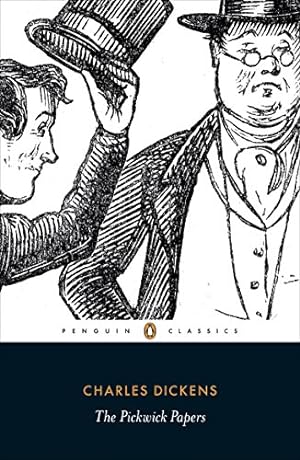
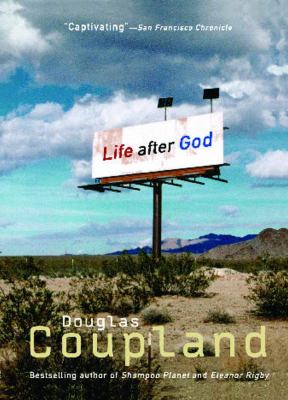

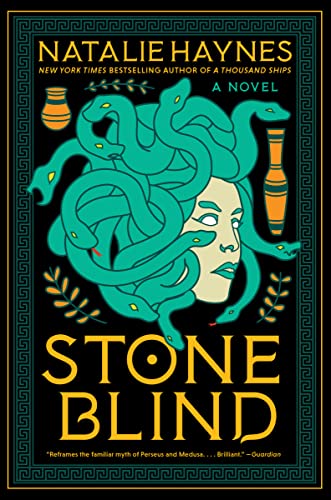


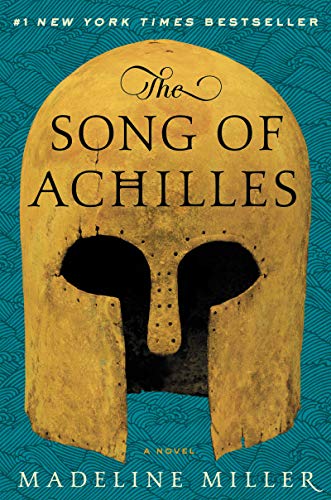
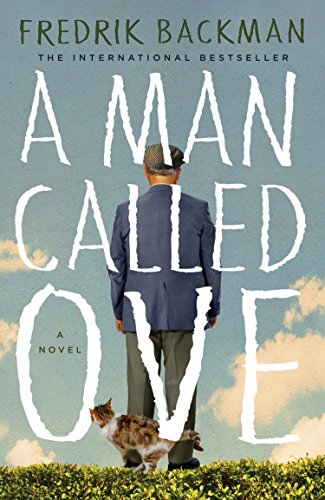
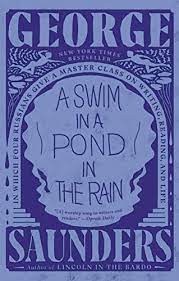
 RSS Feed
RSS Feed